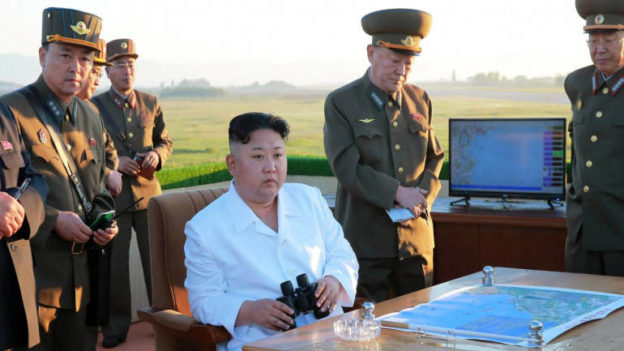To his great credit, President Trump didn’t allow the testimony of his former lawyer Michael Cohen before a Congressional committee to pressure him into making a deal at all costs with North Korea.
It would have been helpful to the president’s image to have upstaged the Cohen hearing last Wednesday with the signing of an agreement with North Korean dictator Kim Jong Un – a signing ceremony had in fact been scheduled – pushing Mr. Cohen’s allegations of the president’s ethical and moral turpitude to second place in the day’s news cycle.
But, despite the two days the American and North Korean leaders spent together in Hanoi at their second summit, there was no diplomatic triumph to announce, not even the usual joint statement expected after such talks.
Things apparently broke down when it became clear that the North Korean despot was unwilling to even disclose the number and locations of his country’s nuclear weapon sites until some economic sanctions against his country were lifted. And even then, reportedly, he was prepared to shut down only one of his reactors. Mr. Trump, laudably, would not agree to that, even if it meant that news organizations would be focused on Mr. Cohen’s harsh disparagement of his former boss.
Less laudably, the president responded to a question about the American Jewish college student Otto Warmbier, who was arrested in North Korea for allegedly stealing a propaganda sign and died six days after he was repatriated to the U.S. in a coma, by relating that Mr. Kim denied knowledge at the time of the student’s deterioration in a North Korean prison, “feels very badly” about it, and that he, Mr. Trump, takes the Korean leader “at his word.” (He later said that his words were “misinterpreted.”)
Mere hours later, true to form, Nikki Haley, Mr. Trump’s former ambassador to the United Nations, tweeted starkly that “Americans know the cruelty that was placed on Otto Warmbier by the North Korean regime.”
The president, of course, may have just been trying to be diplomatic, with the goal of achieving some future actual progress on North Korea’s nuclear disarmament, and may harbor very different feelings about his summit partner than he verbally expressed. If he does, he is justified.
Shortly before the summit, a collection of accounts from North Korean defectors and North Korean officials in China was released, under the title “Executions and Purges of North Korean Elites: An Investigation into Genocide Based on High-Ranking Officials’ Testimonies,” by the Seoul-based North Korean Strategy Centre (NKSC).
It offered chilling accounts of utter contempt for human rights and numerous murders, claiming that Mr. Kim has had 421 officials executed and exiled since seizing power in 2011. Some victims, it reported, had been thrown unclothed to vicious hunting dogs; others were killed with shells; others still, burned alive with flamethrowers.
In some cases, the report asserted, entire families of officials have been executed or were imprisoned in concentration camps and “erased from society.” Officials faced death or imprisonment, the report alleges, for minor infractions like improper posture at an event attended by “supreme leader” Kim.
Mr. Kim is also said to have ordered the execution of his own family members, including his uncle Jang Song Thaek, who was killed along with his associates in 2013 (for having “sold the country’s resources to foreign countries at a low price”), and his half-brother Jong-nam, who was assassinated at a Malaysian airport in 2017.
A former student at Pyongyang Commercial College, identified only as “Moon,” is quoted in the report as claiming to have witnessed a 12-man public execution by soldiers using anti-aircraft guns. Armored vehicles then reportedly crushed their remains.
Evil tends to dovetail with Jew-hatred, of course. And that may be why North Korea sent pilots to Egypt during the Yom Kippur War, more recently helped Syria construct a nuclear reactor and recognizes the sovereignty of the non-existent “State of Palestine” over all of Israel, except for the Golan Heights (which it considers as part of Syria).
There are, of course, despots at the helm of other countries with which the U.S. has made strategic alliances over the years. And such associations, disturbing as they are, are not always the worst of the available options.
But it is hard to find a parallel, outside the example of Nazi Germany, to the sort of flagrant monstrousness that credible witnesses have described as an essential characteristic of the Korean peninsula’s hermit kingdom.
Iran, still abiding by the 2015 multi-nation deal, isn’t currently an immediate nuclear threat to others.
North Korea, though, is. And President Trump should not rest until it, too, is constrained.
© 2019 Hamodia
